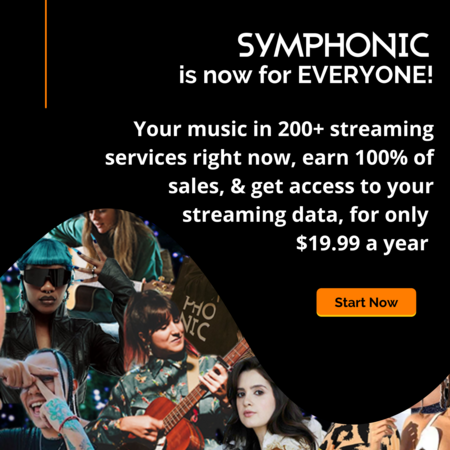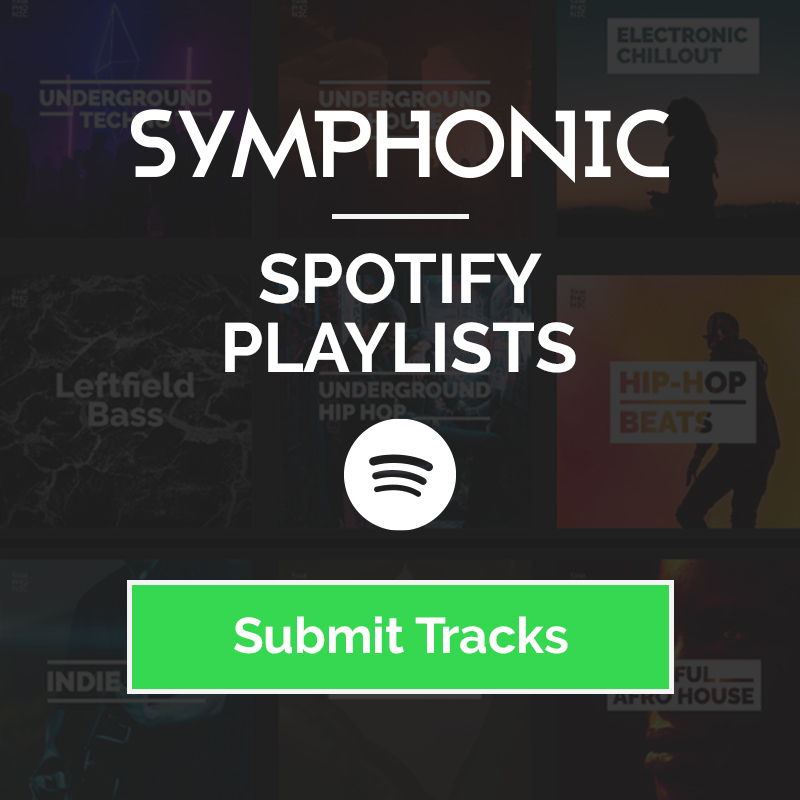
by Francesca | Jan 25, 2024 | Legal
This information is brought to you by Debbie Egel, an attorney whose practice includes writing and reviewing music contracts, running an independent label for over 10 years; and developing indie artists. She is knowledgeable of the economics of music, the DIY process, and has written an instruction manual for Indie artists, labels and managers called “For The Record” and teaches an on-line course. Debbie has a deep appreciation of the business of music as well as her legal knowledge as a practicing attorney. We are sharing it with you here to give you a sense of some of the decisions and complexities involved in these questions. Streaming Promotions does not provide legal or tax advice. You should consult with your personal legal and tax professionals regarding your specific situation before making any decisions.
When it comes to major record deals, there are a lot of things to consider. That’s why it’s important to always get a second, or even third, set of eyes on anything that requires a signature and involves your finances. Here’s what to look for before you dive in…
How to Know if Signing a Recording Contract Is Right For You
You LOVE music, and you have been working hard, creating and recording music. You’re also keeping up a social media presence, getting gigs, taking photos and posting, getting your look right, releasing and marketing music and the list goes on and on. Now you figure it must be working because someone has reached out and is speaking to you about signing a record deal.
While many artists view a record deal as the solution to their problems, look before you leap.
Record labels can be great opportunities to get your music in front of an audience and help you build fans. Labels can provide support in terms of production, marketing, legal knowledge and access to experienced industry vets. It takes a village and no one can do this alone. However, you should be careful, thoughtful, and selective before you sign on the dotted line.
The contract will be defined as binding you for a period of years or a number of singles or albums that have to be delivered to fulfill the agreement. The contract is like signing a marriage license. It is basically a relationship, and it is important to date before you get married. So how do you know if a record deal is the right move for you? First and foremost…
Do Your Homework
Artists should be paying attention to these items:
- What is the label’s track record with your genre?
- Do they have a website?
- Do they have artists that have been signed fared well?
- Is there already an act signed that sounds similar to you?
- What can this label do for you that you can’t currently do on your own?
- Have they listened to your music? What do they have to say about it?
- Have you spoken to them and what is their plan for you moving forward?
- What type of assets can they provide such as production, marketing, finances etc.?
- How long does the contract bind you?
- Has the company asked you about split sheets, production agreements for your current music.
- Philosophically, do both parties to the agreement have the same vision for the music?
If the relationship is a failure, it can often mean the ruin of an artistic career. So be careful!
What do labels look for?
Truth be told, artists working independently can only get so far before needing a bigger team. Labels can be that team, helping you increase your reach and overall success. However, this costs money.
Like any successful business, if you need a large injection of money in order to get to the next level, you must be able to recover that investment. With record sales declining and streaming income at an all time low, record companies need better ways to secure their investment. For example, like a 360° contract, which is used to potentially make a profit from their investment.
How have you built your fanbase? Are they buying your projects? Look at it like this: if you’ve been pumping out nothing but free albums, do you really anticipate them buying your major label debut if you haven’t put any value on your music beforehand?
What else do they consider?
Labels also typically consider physical attendance at your shows and whether you can sell units or derive money from streaming. They also look at your other income streams, like merch and touring.
Remember, both sides have to benefit or else the relationship is not going to be successful.
What you should know at the table…
Contract terms depend on the bargaining power of the artist. A new artist with no real history of earnings will not get the same terms as an artist with a proven record of strong earnings.
These terms can include:
- Royalty rates
- The number of songs to be delivered
- What costs the record company will pay for
- The amount of money the record company will spend on social media campaigns
- What type of music production support they can provide
- Whether the record company will also participate in the money earned from music publishing, merchandising and live performances.
If you have confidently answered these questions and are willing to give up a percentage of your earnings, it’s time to contact an attorney to review the deal.
From a legal standpoint, a contract that is well written and contains clear and unambiguous deal terms is off to a good start. Just make sure to use an entertainment attorney that understands these terms and can fight for you during contract negotiations.
IMPORTANT NOTE: Think twice about using an attorney the label directs you to!
In Conclusion…
It is important to point out again that team work makes the dream work. The progression in an artist’s professional career is to attract a label that provides all the necessary elements to get you to the next level. Having said all this, focus on making the best music you can and building your fan base. It all begins and ends with GREAT music. If you’re making waves, labels will come to you, and that’s a much better position to be in anyway.
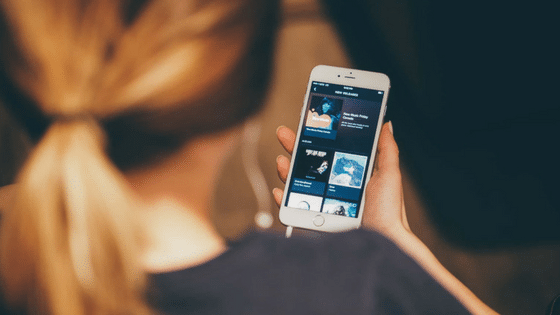
by Francesca | Jan 18, 2024 | Music Marketing
Spotify is a powerful tool for any artists interested in reaching a larger audience. One of the most effective ways to utilize the platform is to create a custom Spotify for Artists profile, which will help you get verified, easily manage your profile, learn about your fanbase and more. In this post, we’ll break down some tips to help you make sure your profile is optimized and ready to go.
How To Optimize Your Spotify for Artists Profile
To create your Spotify for Artists profile, go to artists.spotify.com and claim your profile. Once your profile is approved, you’ll receive automatic verification, which will make you more discoverable among other artists and boost your position within Spotify’s algorithms. Next, let’s take a look at some helpful hints for creating a Spotify for Artists profile and utilizing it for maximum success…
Use Artist’s Pick
Artist’s Pick is a valuable tool that allows you to feature music at the top of your profile. You can make a track, an album, a playlist or even an event the focus of your profile for two weeks, but you can update it at any time. This allows you to draw listeners to a certain release with the ability to include a short message as well.
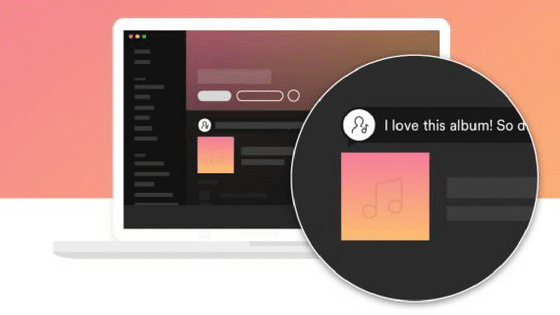
Create and Feature Your Own Playlists
Creating your own playlists is a powerful way to connect with your fans and other artists. Playlists can give you the ability to promote your newest releases while supporting other artists and showcasing your sound. Utilize playlists as a tool to connect with other artists, and show fans what you’re all about.
List Your Concerts
Did you know that you can actually list your own concerts on Spotify? Simply connect your Ticketmaster, Songkick, Eventbrite or AXS profile and your upcoming events will be listed on your profile. This can be done through the Spotify for Artists dashboard, and will be updated automatically every time you announce a new event.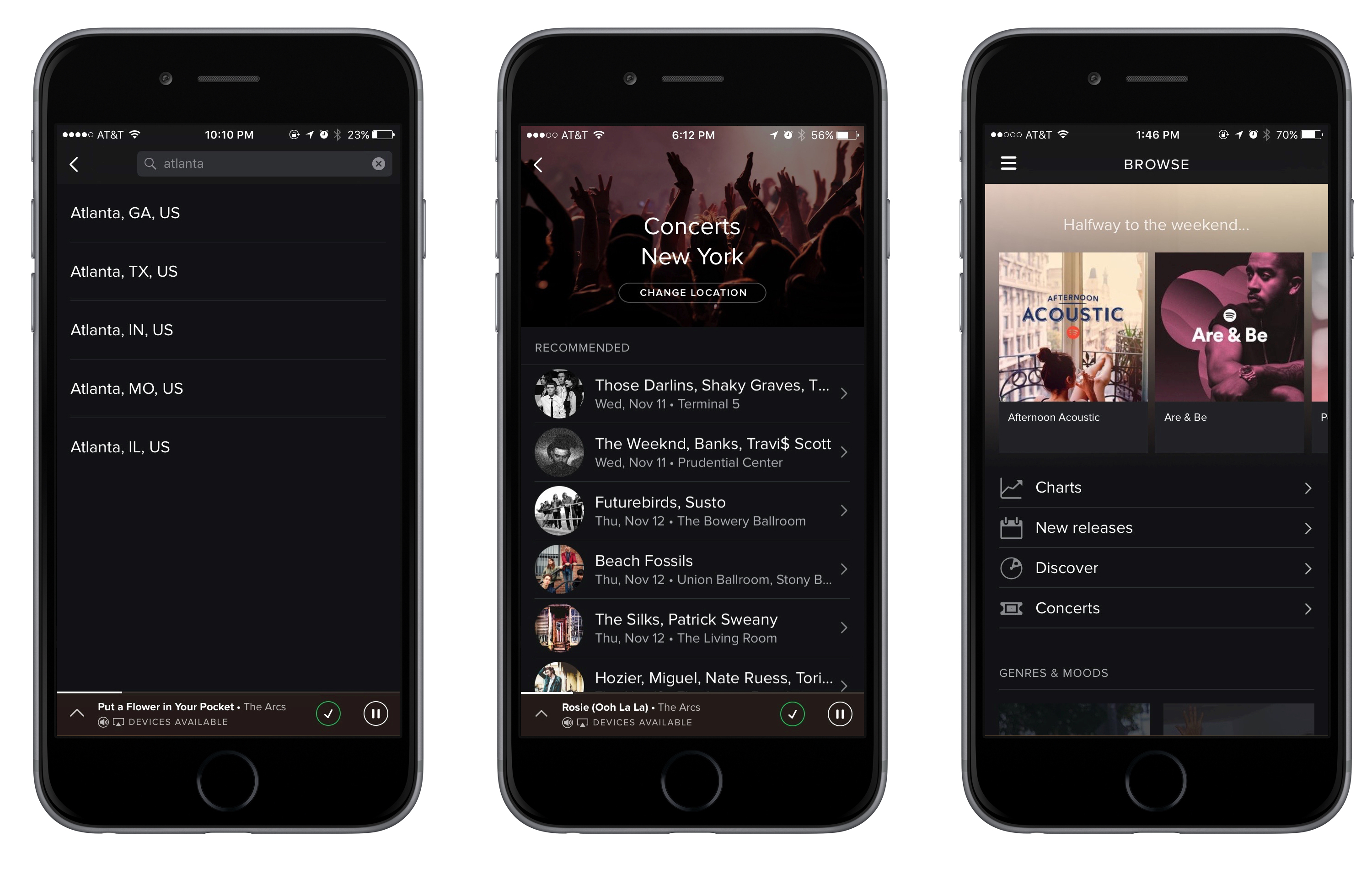
Utilize Your Data Effectively
The Spotify for Artists dashboard is useful for learning all types of information about your music, and the people who listen to it. You can access analytics in real-time and see where your plays are coming from. If they’re coming from a certain playlist, make sure to reach out to the curator with your next release. If they’re coming from a certain location, try and reach out to the promoters of that area. The possibilities are endless!
Keep Your Profile Up-To-Date
Keeping your artist profile updated with up to date information at all times is very important. Use Spotify for Artists’ tools to upload a current profile photo, add a bio and more. Make sure your image is high resolution and your bio tells listeners who you are and what you’re about. Make sure to update both of these consistently and make sure to highlight any major achievements or announcements.
//
Ready to take your Spotify to the next level?
[Click here to download Symphonic’s official Spotify Guide]
Good luck!

by Francesca | Jan 18, 2024 | Music Industry, Music Marketing
2023 is finally a thing of the past! It’s been a long year, but it’s time to start looking towards the future. As a musician, it’s important to set goals for your career and create a plan to make them happen. From learning new skills and getting more followers to earning more money and booking more gigs, setting clear goals is the key to seeing your dreams come to life. Here’s how to set better goals for the new year…
How To Set Better Goals As A Musician in 2024
Let’s talk S.M.A.R.T.
When it comes to goal setting, many pros around the world use the S.M.A.R.T method. Created back in 1981, S.M.A.R.T is an acronym that helps you create specific criteria for your goals to help improve the chances of their success.
What does it stand for?
S – Specific
M – Measurable
A – Achievable
R – Realistic
T – Timed
How to use the S.M.A.R.T Method:
When it comes to your music career, your goals need to be realistic and specific. You should be able to quantifiably measure their success. For them to be achievable for you as an artist, you also need to be able give it a set time period for it to be accomplished by.
🧠 Pro Tip: Always write down your goals. Once they’re written down, you can look back at them whenever you start to feel lost and get right back on track.
Here’s an example:
Let’s apply the S.M.A.R.T method to, “I want more people to listen to my music”.
What’s wrong with that? — This goal needs to be more specific. First, think about where you want more people to listen to your music. Which platform do you want these listeners on? Next, make it measurable. Come up with a variable that is quantifiable. Now, it’s time to make sure it’s achievable and realistic for where you are in your career. How many new listeners are you actually capable of reaching with your resources?
Those big time goals are good to keep in the back of your mind, but starting off with unrealistic goals will make you frustrated and disappointed when you’re just starting out. You’ll eventually reach those crazy goals, but you need to start small and work your way up. That being said, this leads us to the last step. Timed.
Your goals need to have a time limit. It’s easier to stay on track when you have a set time frame to get things done. (With checkpoints along the way!)
When you apply the S.M.A.R.T method to, “I want more people to listen to my music”, it turns into something like: “I want 1000 more monthly listeners on Spotify by May 31th.” instead. You can keep it focused on your profile’s full monthly listeners or you could break it down even further by focusing on a single release.
Now, that’s doable!
Let’s try one more.
Let’s try a more complex example for applying the S.M.A.R.T method. How about, “I want to go on tour.”
Great goal!
Let’s make it specific, measurable, achievable, realistic and timed. Specifically where and when do you want to go on tour? Is it the right time in your career to start touring? Do you have enough fans in various cities who would buy tickets to your shows? When do you want to achieve this by? What variables do you have to meet in order to meet this goal? For example, reaching X total amount of monthly listeners by this date or cultivating X amount of fans in X cities by this date.
How does this change our original statement? Something like, “I want to go on tour” changes to something like “I will meet XYZ requirements for touring by December 1st in order to start touring by January 1st .”
Make sense? Keep in mind, you can make these goals as specific as you need to. The more specific, the better.
In Conclusion…
2023 was rough for a lot of us. However, one thing it did give us was a chance to assess ourselves. What do we want for our music careers? What’s been working? What efforts have been more time consuming than fruitful? Now that you’ve had all this time to brainstorm about the future, it’s time to make sure your goals for the new year reflect that. 2024 is a great opportunity to jump back in and hit the ground running!
Just be S.M.A.R.T. 😉
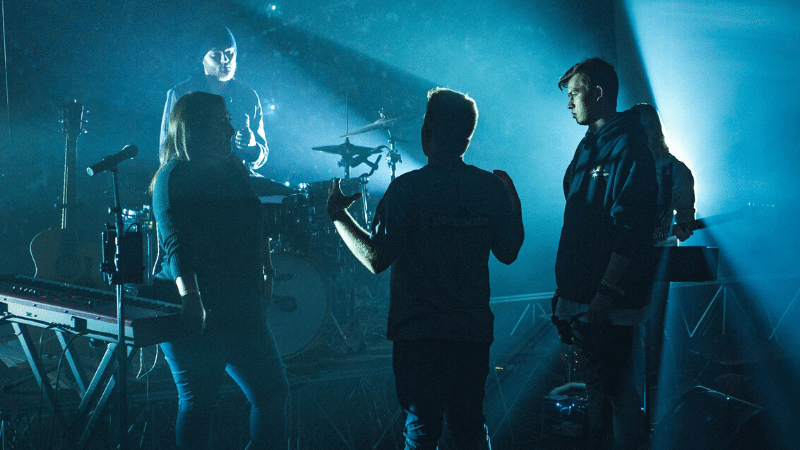
by Francesca | Jan 11, 2024 | Music Marketing, Social Media
One of the most underutilized tools for networking in this industry are Facebook groups. Every day, tons of music industry-related groups are actively sharing knowledge within communities of like-minded individuals just like you. In these groups, you can ask for support, get advice, inquire about job opportunities and so much more. Here are some of our favorites…
Music Business Facebook Groups You Should Join
DIY Tour Postings
If you’re a musician planning a tour, DIY Tour Postings should be a staple in your bag of tricks. This one is a killer resource for those in need of gigs to play, opening acts, or even if you’re a talent buyer or scout looking for potential acts for your next show.
Last minute realizing you aren’t selling as many tickets to your upcoming show as you’d hoped? In here, you can promote yourself without censorship and they will help you to fill your concerts with people. This group is also full of seasoned tour vets who know the ins and outs of tour life and offer valuable advice for those who are new to the game.
Artist Managers Connect
Artist Managers Connect is a digital community of artist managers from around the world who are dedicated to sharing knowledge, advice, and opportunities in order to better serve our artists and the industry as a whole. Industry pros and newbies alike have a lot to gain from this group.
Everyone Knows Everyone In The Music Industry
Everyone Knows Everyone In The Music Industry is a group that has tons of cool music people who are all there to share information about jobs, gigs and opportunities in the industry. They have a rule about not sharing ads, so it’s the perfect place to see strictly great opportunities from like minded people. It’s a private group, but you can request to join right here.
Music Biz Besties
Calling out all the ladies in the crowd, this one’s just for us. Music Biz Besties is a private group for female musicians & industry leaders hosted and founded by Katherine Forbes. Katherine started the group with a love for networking and a yearning for a strong community of women all working together to turn dreams into reality.
In this group, you’ll have access to job opportunities, a community of music lovers just like you, and insights for how to make it in an industry that’s all about hustle and badass networking.
Nashville Music Industry
This Nashville Music Industry Facebook group is open to everyone who is in any way involved in the Nashville Music Industry. All you have to do is introduce yourself and let them know how they can help you! If you’re in Nashville, this is group is a must.
Symphonic Fam
Here at Symphonic, we’ve got our own FB group that fosters a supportive space for the indie music community to talk about the industry. Members can collaborate together to share knowledge on best practices, make valuable connections, and share related content. In Symphonic Fam, everyone is free to ask questions and share helpful tips and tricks with a supportive community of music industry peeps. This group is all about helping each other out by empowering independent musicians everywhere to do what they love.
Women Empowered Mentorship Program
In addition to out Symphonic Fam Facebook group, there’s also a group for our Women Empowerment Mentorship Program. The group is a community dedicated to empowering women and supporting each other on our professional journeys’. This group is a safe and inclusive space for women to network, connect, and uplift each other.
Here, you’ll find a platform for job postings, networking opportunities, and resources for personal and professional development. Our community members have access to exclusive content, including webinars, workshops, and guest speakers. Whether you’re looking for a mentor, seeking advice, or simply want to connect with like-minded women, this is the place for you.

by Francesca | Nov 30, 2023 | Music Marketing
As intimidating as it seems, consistently releasing new music (every month or even every week, if you believe that works for you) has many undeniable benefits. Aside from making your fans happy to hear more from you, this practice does a lot of good for artists at any level. In this post, we’ll give you 6 reasons to release new music consistently. Here’s the rundown…
How Releasing Music Consistently Can Improve Your Career
Increased Engagement
Consistency is good for engagement on any platform, no matter what you’re into. Want to get better at production? Practice every day. Want to improve your vocals? Sing every day. The same theory applies to putting out music. The more you do it, the most traction it’s going to get. And let’s face it… your fans want as much from you as they can get. When you release new music, on any platform, the amount of people who will interact with it will grow right along with you. Not to mention, from the fan point of view, there’s something exciting about being able to expect something new from your favorite artist every week.
Go Viral on TikTok
TikTok also thrives on consistency. The more you post, the better your chances of it being caught up in the wave of a random trend. Every time you release music, use it to make little TikTok babies. Whether you use it to follow existing trends or to try and create new ones, the more you post the better.
Not sure how to figure out what’s trending right now? No problem. We did a whole post right here that gives you 6 of the best ways to find the hottest trends right now. And if you’re new to TikTok, here are some helpful resources to help you thrive…
Grow Your Catalog
Releasing music more frequently helps you grow your catalog significantly faster than if you waited every 6 months. This can be advantageous for streaming platforms, as the more songs you have increases your chances of being discovered through playlists and algorithms.
If you already have an extensive back catalog, did you know there are things you can do with it to keep the momentum going behind the scenes while you work on new things? Check out, “How To Maximize your Back Catalog While Working on New Releases” to learn how.
Build Momentum
Releasing songs consistently is a great way to build momentum for something bigger down the line. If you plan on going on tour or releasing a full album later in the year, you can hype up the day to come on socials with every release more often. Get everyone on board and offer incentives for streaming your tracks. If they like what they hear, they’ll share your work with their friends and grow your audience one release at a time. When whatever big day finally arrives, you’ll have a whole team of people ready to experience the fun and share it on socials.
Better Chances for Sync
If you want to get featured in movies, TV, commercials and more, it doesn’t hurt to give sync reps a lot to choose from. Although having a lot to choose from does technically help your chances, what kind of music you have out also plays a part.
Jon Mizrachi, the Senior Director of Sync Licensing for our in-house sync licensing division, Bodega Sync, explains:
“If you really want your music to stand out, it’s important to understand that songs are used in sync to support a narrative, not to tell one. If there’s a sad montage where someone dies, you’re not going to hear a song with lyrics about someone literally dying… Even in advertising, which is typically far more literal, music will be used to add depth to whatever you see in the footage or hear in the voiceover. You know what’s not a great song for Toyota? A song about Toyotas.”
So, if you really want to focus on optimizing your music for sync, try to create universal songs that aren’t too specific. If the goal is to connect with the listener, you have to craft your songs to be as relatable as possible. In addition, once one of your songs gets featured, the chances of your other songs getting chosen for other sync opportunities goes up, too. The more music you have, the higher chance of something being perfect for that new TV show hitting the market.
Practice Makes Perfect
Putting out music more often gives you the chance to really experiment with your personal sound. You can try new things and see how your audience reacts and if it doesn’t quite hit, no big deal! Try something new the next time, and keep it moving.
At the end of the day, I realize putting out music consistently is no easy task. Depending on your music, it may even be impossible. If you specialize in full blown musical arrangements for every track or don’t have frequent access to a studio, finishing a full song on a monthly or even weekly schedule is insane to even fathom. At the end of the day, it is up to you and this is an idea to try out where it makes sense. Challenge yourself to at least try, and see how it works for you.
Good luck!








